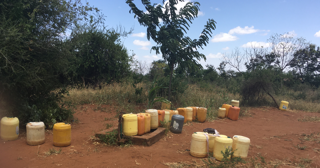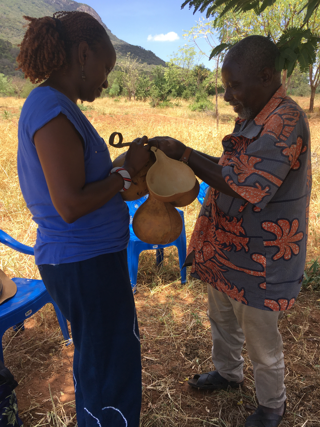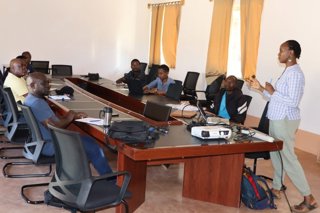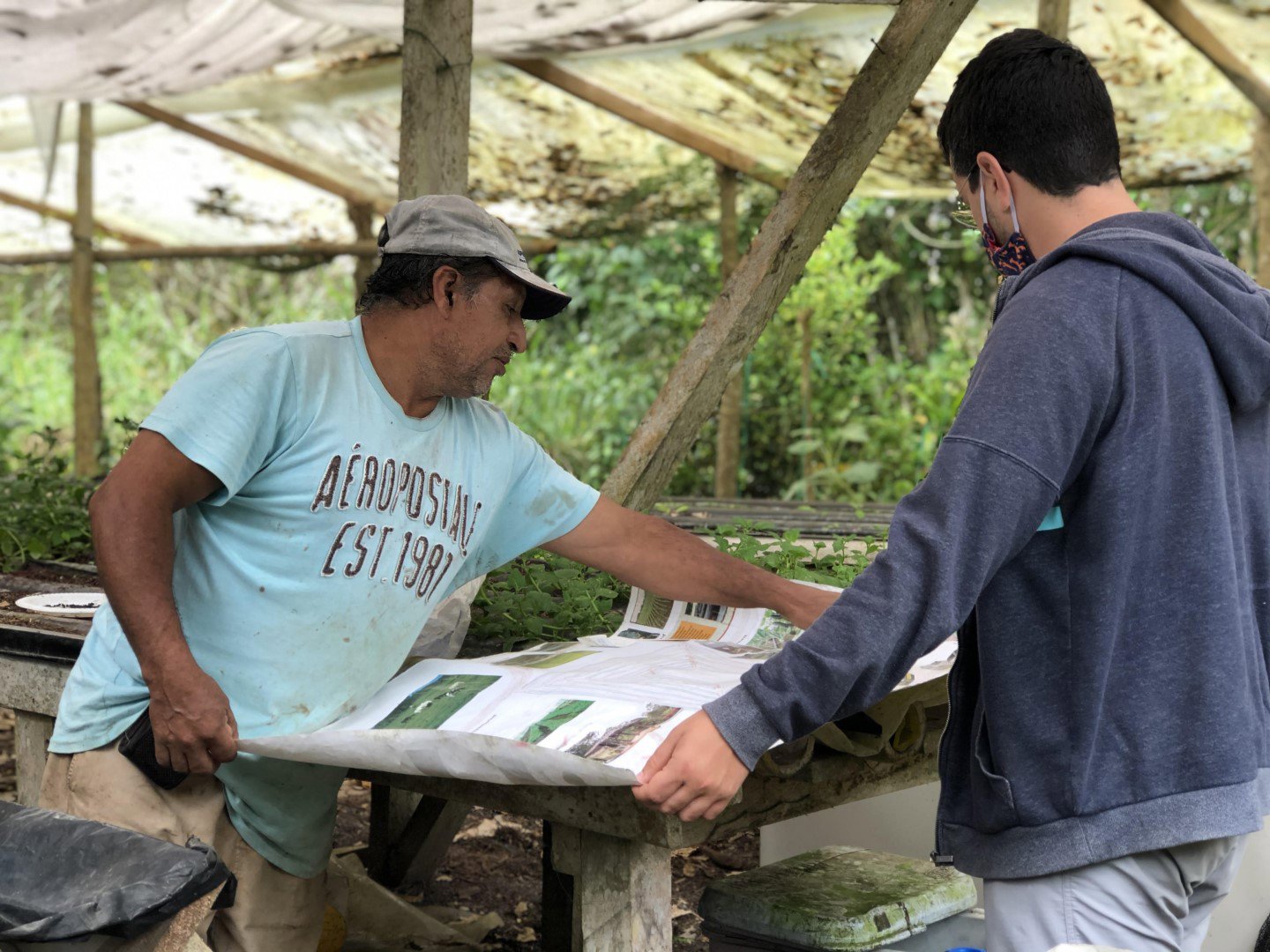Maureen W. Kinyanjui is a PhD researcher at the University of Edinburgh. We caught up with Maureen to find out more about her research working with the Sagalla community in southeast Kenya in May and June 2023.
What was the background and wider context of your research?
My research seeks to explore ways of improving the resilience and sustainability of human-elephant coexistence in Sagalla, in southeast Kenya. The Sagalla community resides in the Sagalla ward, located between Tsavo East and Tsavo West National Parks and surrounded by various private ranches and wildlife sanctuaries that provide migrating corridors to elephants. Conflict arises when elephants move into community lands to search for food and water, often entering farms and damaging crops. Human-elephant conflict (HEC) has intensified over the last few years as humans and elephants compete for limited food and water sources. This situation is caused by prolonged drought resulting from climate change.
What questions did you set out to answer and how?
Initially, my objective was to find ways to improve the community members’ tolerance towards elephants to achieve sustainable coexistence. However, my first fieldwork prompted a change in my research approach. Instead of shaping questions to align with my research objectives, I prioritised community input. I realised there were deeper social factors I did not fully comprehend, such as the interplay of politics, power and emotions, which significantly impact elephant conservation outcomes. As a result, my research adopted a more inductive approach, co-led by the community, and aimed to understand the dynamic interactions of underlying social, economic, and political factors in a rapidly evolving world and their impact on elephant conservation outcomes.

Lack of water in the community increases the perceived and felt costs of sharing space with elephants.
What are your main findings to date?
The visible conflicts we witness or hear about, such as instances where community members harm crop-raiding elephants, are merely symptomatic of a deeper conflict. Through my research, I am discovering that human-elephant conflict primarily stems from conflicts among humans, particularly between those responsible for elephant management (conservationists and wildlife government officials) and local community members. This human conflict is characterised by intricate interactions that involve asymmetrical power dynamics, evoke diverse emotions, and shape individual and collective identities. These factors significantly influence how community members interact with elephants, their surroundings, and conservationists.
What will be the wider impact of your research?
My research delves into the intricate connections between power, politics, and emotions within a rapidly evolving social-ecological system. Doing so offers a nuanced comprehension of the factors that shape human behaviour towards the environment, wildlife, and people. Going beyond superficial observations of human-wildlife conflict, my study uncovers the intricate web of human interactions that impact how people engage with nature. I am confident that this research will aid conservationists in understanding the reasons behind negative outcomes associated with certain conservation actions and guide them in designing projects that minimise adverse effects.

Maureen in the field after a focus group discussion receiving a guard gift from a community elder.
Do you have a highlight from your fieldwork?
During my recent fieldwork, I presented my initial findings to representative groups of community members. The objective was to update them on the progress and discoveries of my research while seeking their feedback. The intensive workshops spanned four days and involved diverse groups, including single/widowed women and youth from different villages. These workshops focused on envisioning desired coexistence scenarios and critically analysing my findings. In a significant moment, an elder referred to the research as “our community research,” indicating that the community felt a sense of ownership and that their voices were well-articulated. This affirmation attested that my research empowers the community and amplifies their perspectives, which is one of my research goals.
What will you take away from your fieldwork and how will you use this going forward? What’s next?
Centring local community voices in research is crucial. They are not mere data providers for achieving research objectives but active agents and participants in their own narratives. My research grants them a platform to express their lived experiences with elephants by involving them in co-producing knowledge. I utilise this experience to inform future interactions with local communities, being mindful of my positionality and how my actions, whether in conservation research or as an individual, can either impede or facilitate positive outcomes. Now I will be finishing the analysis of the research and writing my PhD thesis!

Maureen presenting research progress to the Wildlife Research Training Institute (WRTI) - Tsavo research group during fieldwork.
Frederick Soddy Postgraduate Award
Maureen's research was supported in part by the Frederick Soddy Trust through the Frederick Soddy Postgraduate Awards.


